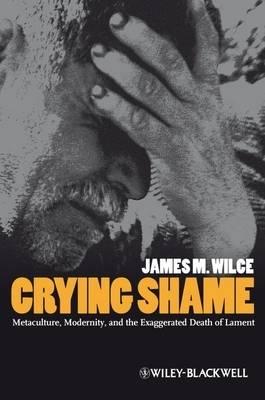Overview
Building on ethnographic fieldwork and extensive historical evidence, Crying Shame analyzes lament across thousands of years and nearly every continent. Explores the enduring power of lament: expressing grief through crying songs, often in a collective ritual context Draws on the author?s extensive ethnographic fieldwork, and unique long-term engagement and participation in the phenomenon Offers a startling new perspective on the nature of modernity and postmodernity An important addition to growing literature on cultural globalization
Full Product Details
Author: James M. Wilce, Jr. (Northern Arizona University, USA)
Publisher: John Wiley and Sons Ltd
Imprint: Wiley-Blackwell
Dimensions:
Width: 16.00cm
, Height: 2.80cm
, Length: 23.60cm
Weight: 0.599kg
ISBN: 9781405169929
ISBN 10: 1405169923
Pages: 290
Publication Date: 07 November 2008
Audience:
College/higher education
,
Postgraduate, Research & Scholarly
Format: Hardback
Publisher's Status: Out of Print
Availability: In Print

Limited stock is available. It will be ordered for you and shipped pending supplier's limited stock.
Reviews
Wilce's book is fascinating for the range of cultures it considers--from ancient Greece and pharaonic Egypt to rural Bangladesh and Finland. Especially appealing are Wilce's dazzling and creative conjunctions (such as Phil Spector's American pop-cultural wall of sound as a way of appreciating polyphonic funerary laments of the Amazonian rain forest). Wilce's personal and scholarly engagement with the material successfully conveys the nostalgia for emotional authenticity and the longing for fully-lived life that haunt present-day globalized societies. -David Pinault, author of Notes from the Fortune-Telling Parrot: Islam and the Struggle for Religious Pluralism in Pakistan Crying Shame brings a broad range of scholarship to bear on the subject of lament. Wilce not only offers a brilliant synthesis of past and present scholarship, but argues persuasively for the continuity of lament in new and surprising forms. -Gail Holst-Warhaft, Cornell University In this beautifully written work, alternately rueful and ironically twinkling, Jim Wilce trains a laser-beam of attention on a specific topic-the loss of lament-that turns out to contain worlds. I can think of no recent book that offers so insightful an overview of both traditional and postmodern aspects of culture in the modern, globalized context. It is also an exciting introduction to key theories and controversies in current anthropology and cultural studies. -Louis Sass, Professor of Clinical Psychology, Rutgers University In Crying Shame James Wilce writes eloquently of lament practices as cultural performances that embody some of the deepest cross-currents of modernity and postmodernity. ...a unique combination of subtle analysis and global vision. -Geoffrey White, University of Hawai'i, Manoa
Author Information
James M. Wilce is Professor of Anthropology at Northern Arizona University. He has published a number of articles and is the author of Eloquence in Trouble: The Poetics and Politics of Complaint in Rural Bangladesh (1998) and Language and Emotion (forthcoming) and the editor of Social and Cultural Lives of Immune Systems (2003). Wilce serves on the editorial board of American Anthropologist and the Journal of Linguistic Anthropology. He is also the series editor for Blackwell Studies in Discourse and Culture.




